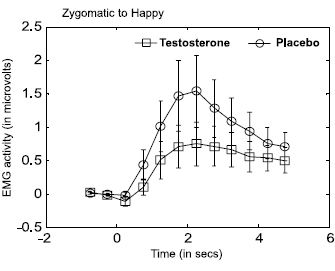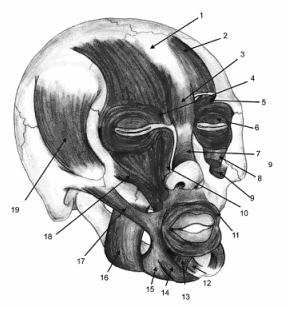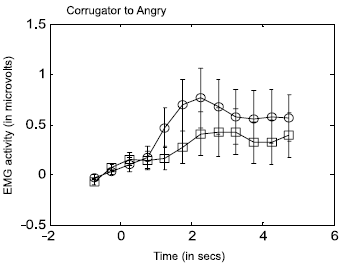|
Definition: "An ergogenic aid is any substance or phenomenon that enhances performance "
|
|
||||||||
12.06.2009 |
|
|
Testosterone reduces your ability to put yourself in someone else's shoes
Giving women a miniscule amount of testosterone makes them noticeably more antisocial, without them even being aware of the fact, according to research done by psychologists in Utrecht, the Netherlands, which was published in Psychoneuroendocrinology.
The Utrecht research is part of a larger project. The researchers discovered earlier on that minute doses of testosterone make women socially handicapped because the hormone reduces sensitivity to social rejection. Another study showed that testosterone makes the heart beat faster on seeing an angry face.
In the study we're talking about here the researchers looked at an empathy precursor. Empathy means you can put yourself in someone else's position and imagine what they are feeling. Empathy is what distinguishes normal people from psychopaths. The reason that men use violence more often than women is because of testosterone.
The researchers attached electrodes to two facial muscles on each of their subjects, which enabled them to see whether these contracted. The electrodes were placed on the zygomatic major, a muscle you use when you smile, and the corrugator supercilii, a muscle that contracts when you frown. In the figure below, muscle number 17 is the zygomatic major and number 5 is the corrugator supercilii.
When people see someone who is smiling they start to smile too, whether they like it or not. Psychologists call it mimicry. The more empathetic you are, the more you smile along with the other person. Sometimes you can't actually see that someone is smiling along, but the electrical activity in the facial muscles betrays the empathy. The graph below shows the electrical activity of the zygomatic major smile muscle of the women as they watched a film clip of a smiling person.
Testosterone reduces the activity of the smile muscle. Testosterone also reduced the activity of the angry frown muscle when the students were shown the clip of a face getting more and more angry. You can see this in the graph below.
When the researchers asked the students if they felt any differently they denied any change. But the electrodes told a different story: the hormone did have a noticeable effect. Even though the dose was minimal.
After reading the article we couldn't help but wonder: if this is the effect of a homeopathic type dose of testosterone – what would be the effect of the kind of doses chemical athletes use?
Source:
More:
|
|




